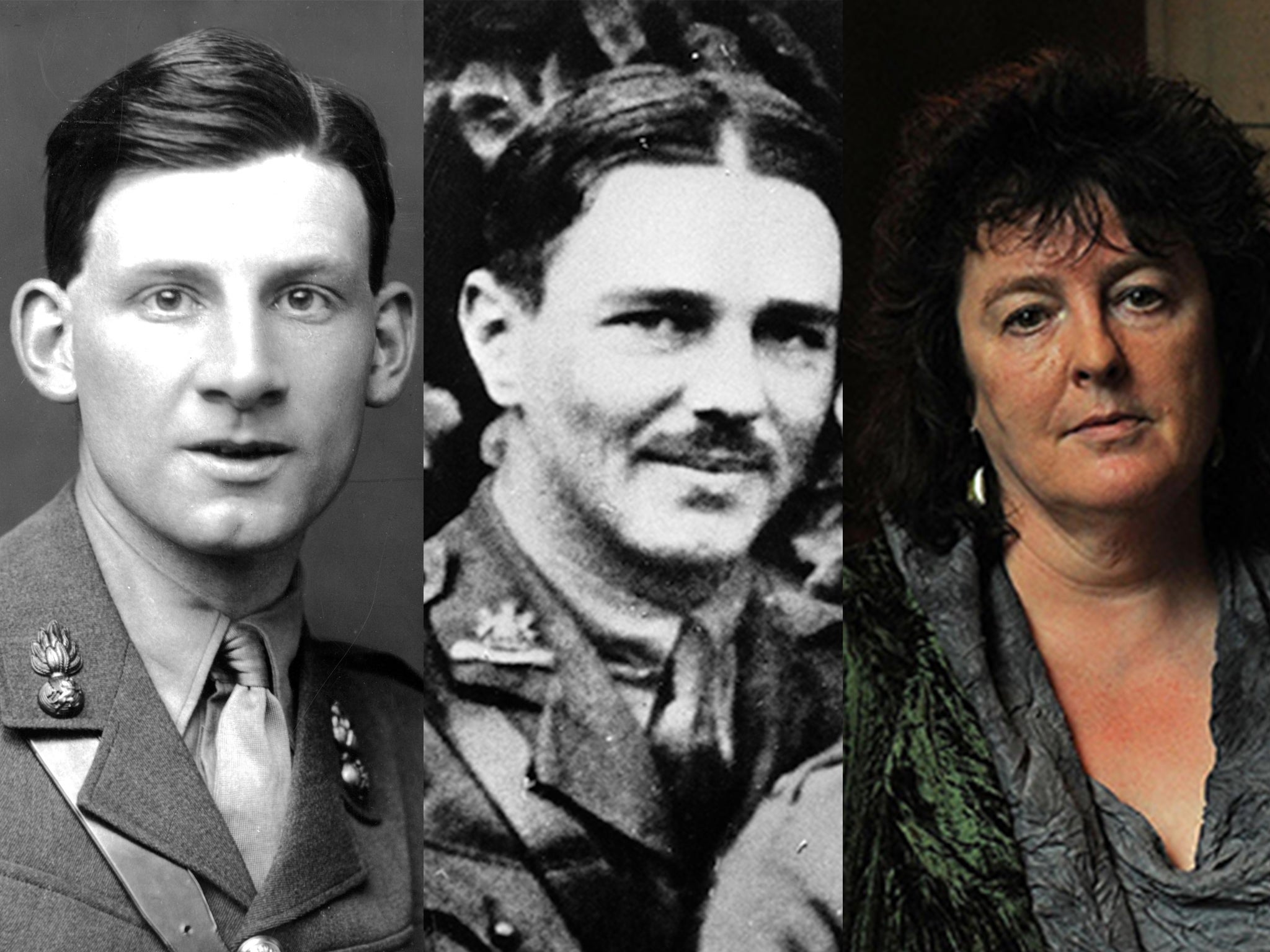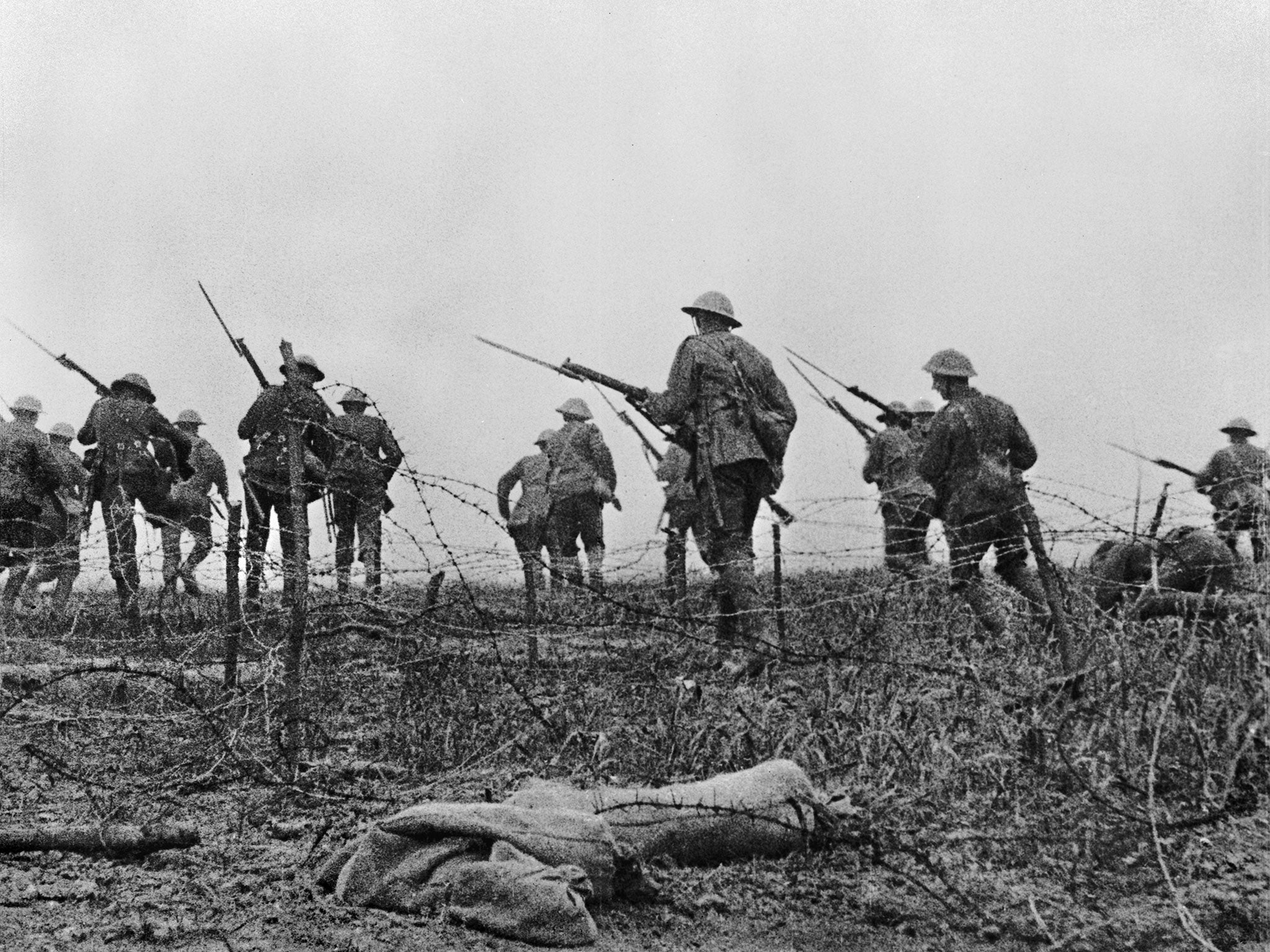Remembrance Day: The legacy of First World War poetry, from Wilfred Owen to Siegfried Sassoon
Wilfred Owen and Siegfried Sassoon captured the barbarity of war. Now Carol Ann Duffy has released an anthology, and it broadens our understanding of what war poetry can be, says Ceri Radford


Your support helps us to tell the story
From reproductive rights to climate change to Big Tech, The Independent is on the ground when the story is developing. Whether it's investigating the financials of Elon Musk's pro-Trump PAC or producing our latest documentary, 'The A Word', which shines a light on the American women fighting for reproductive rights, we know how important it is to parse out the facts from the messaging.
At such a critical moment in US history, we need reporters on the ground. Your donation allows us to keep sending journalists to speak to both sides of the story.
The Independent is trusted by Americans across the entire political spectrum. And unlike many other quality news outlets, we choose not to lock Americans out of our reporting and analysis with paywalls. We believe quality journalism should be available to everyone, paid for by those who can afford it.
Your support makes all the difference.“BOOM BOOM BOOM BOOM / BOOM BOOM BOOM BOOM”
While the most memorable war poem in the literal sense must be credited to Blackadder’s Baldrick, the First World War – which ended 100 years ago this Sunday – produced some of the most enduring lines in the English language.
A combination of modern sensibilities and mechanical slaughter upended the epic tradition of using poetry to glorify warfare. In its place, came the visceral rage of poems like Wilfred Owen’s “Dulce et Decorum Est”, which described marching in a row of broken down “blood-shod” soldiers and watching the “guttering, choking, drowning” death of a man from mustard gas.
The Latin title and final line are taken from an extract by the poet Horace which translates into: “It is sweet and right to die for your country”. Owen, who was killed a week before the fighting ended, used his haunting talent to tear down this “old lie”. Siegfried Sassoon, a shell-shocked survivor, was equally scathing in poems such as “Suicide in the Trenches”:
You smug-faced crowds with kindling eye
Who cheer when soldier lads march by,
Sneak home and pray you’ll never know
The hell where youth and laughter go.

There is a special bite to poems written by young men who were fighting and dying, a clash between the breathing humanity of their poetry and the barbarity of war. But what about the poetry of peace? Or the many voices beyond the heroic figures on the front lines?
Step forward Carol Ann Duffy, who has released an anthology called Armistice: A Laureate’s Choice of Poems of War and Peace for the centenary of the end of the First World War. Disclaimer: I love Carol Ann Duffy. Anyone who can write a poem about an onion and make it sing has a special place in my heart. She is both brilliant and breezy, and this collection reflects her approach with a range of poems that broaden our understanding of what war poetry can be. As Duffy writes in a foreword: “The poets of these pages write, across centuries, of the grief of war and bruised grace of peace.”
Around a third of the 100 poems in the collection are by female writers, including Sappho on ancient Greek military glory and Jo Shapcott on the chilling euphemisms of the Gulf War. They capture everything from bereavement to the boring mundanity of carrying on – and cleaning up. In “The End and the Beginning”, the Polish Nobel prize-winning poet Wislawa Szymborska writes:
After every war
someone has to tidy up.
Things won’t pick
themselves up, after all

It’s a poem that wears its profundity lightly, capturing the fact that war is constant (All the cameras have gone / to other wars) and ultimately meaningless, as the memories fade out through the generations until we understand “nothing less than nothing” about its causes.
In a similar vein Dorothy Parker, best known for her flip epigrams, imagines Penelope, the wife of Odysseus, stranded a long way from heroism:
I shall sit at home and, and rock;
Rise, to heed a neighbour’s knock;
Brew my tea, and snip my thread;
Bleach the linen for my bed.
From stifling domesticity to distant violence: a highlight of the collection is “Pomegranates of Kandahar”, by Sarah Maguire. Written in 2007, against the backdrop of the war in Afghanistan, it draws parallels between a landmine and a pomegranate to capture the way violence becomes encased in the everyday:
thrust your knife through the globe
then twist
till the soft flesh cleaves open
While military language deliberately deadens empathy – enemies and targets are easier to kill than people, after all – poetry makes you feel the twist of the knife, the blast of the bomb. It also makes you feel the luxury of normality. The Iraqi poet Saadi Youssef’s “Night in Al-Hamra”, translated from Arabic, tells the story of an embattled district in Beirut as an incantation that includes everything from “a candle for the sky that has folded” to “a candle for a bottle of water”.
There are poems that strike a hopeful note: Sassoon is on gentler form here in “Reconciliation”, as he imagines bereaved English and German mothers finding common ground; while Emily Dickinson writes in “‘Hope’ is the thing with feathers” of a bird that sings in the “chillest land”. But some of the most memorable poems confront the impossibility of hope. In “Progress”, Alan Gillis writes about his home town Belfast’s supposed recovery with finely pitched sarcastic rage:
So I guess we can look forward to taking boxes
from the earth. I guess that ambulances
will leave the dying back amidst the rubble
to be explosively healed.
As in Northern Ireland, so in Vietnam. John Balaban, a conscientious objector who was injured by shrapnel while teaching in Vietnam, captures the grotesque aftermath of the conflict. In his poem “In Celebration of Spring”, he describes a marine rotting in a swamp as an “eel / slides through the cage of his barred ribs,” while “all across the USA / the wounded walk about and wonder where to go.”
A hundred years after a conflict that tore Europe apart and killed around 40 million people, this excellent collection explores the gamut of human emotions and responses to warfare. Nature is soothing or savage, reconciliation is plausible or impossible. The one thing binding these poems together is the human empathy at their heart. As Duffy writes: “If war is the messenger of hate, poetry is the messenger of love.”
Join our commenting forum
Join thought-provoking conversations, follow other Independent readers and see their replies
Comments